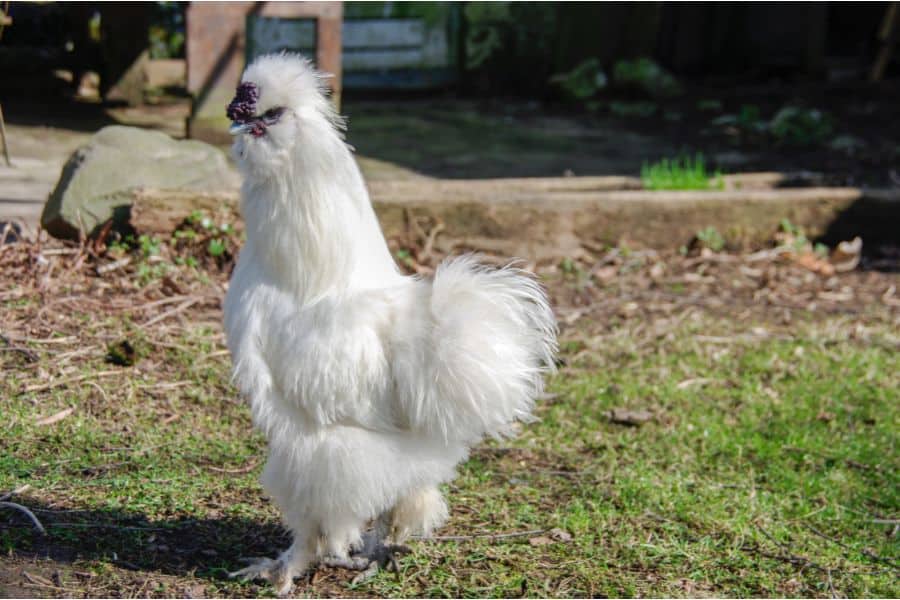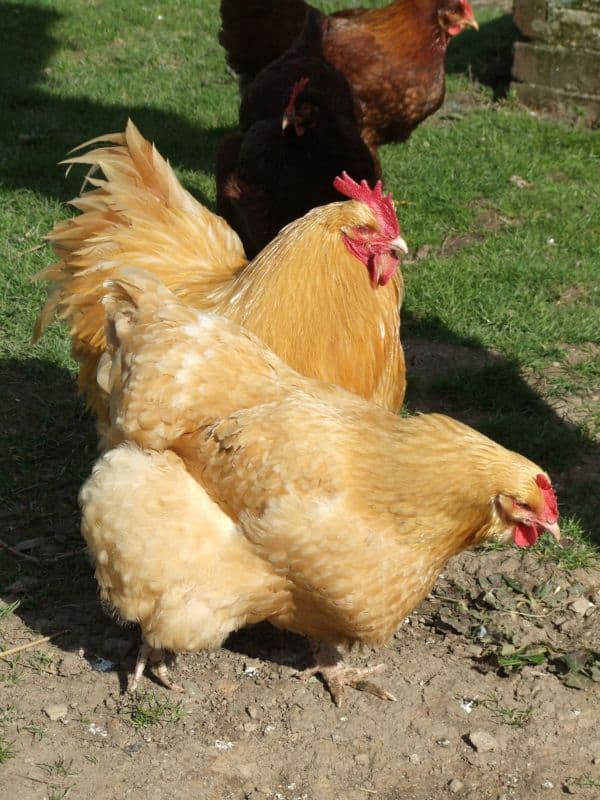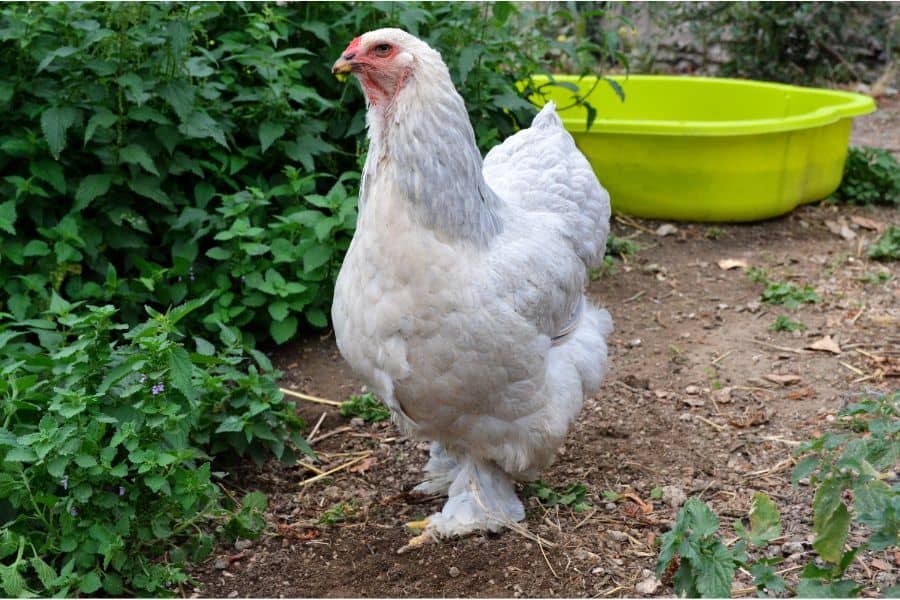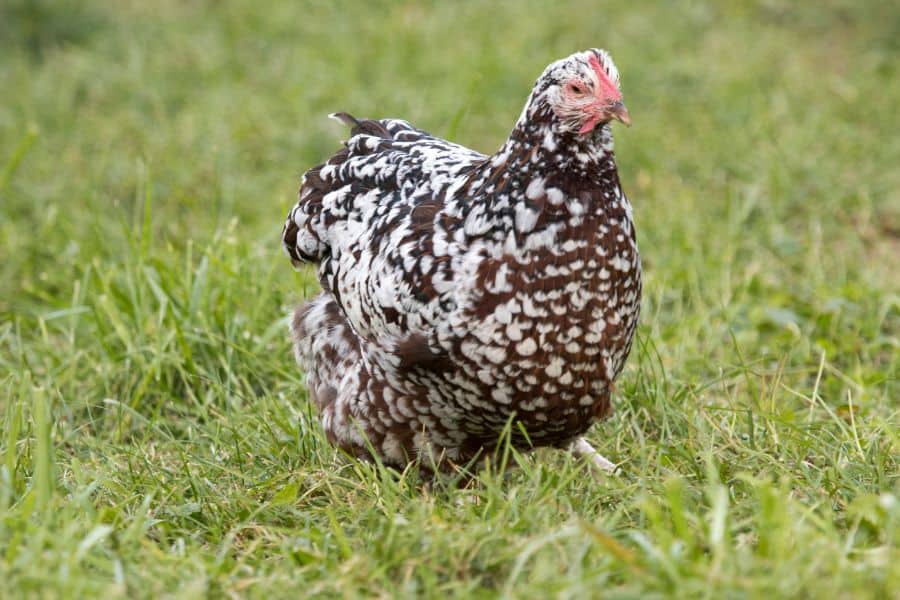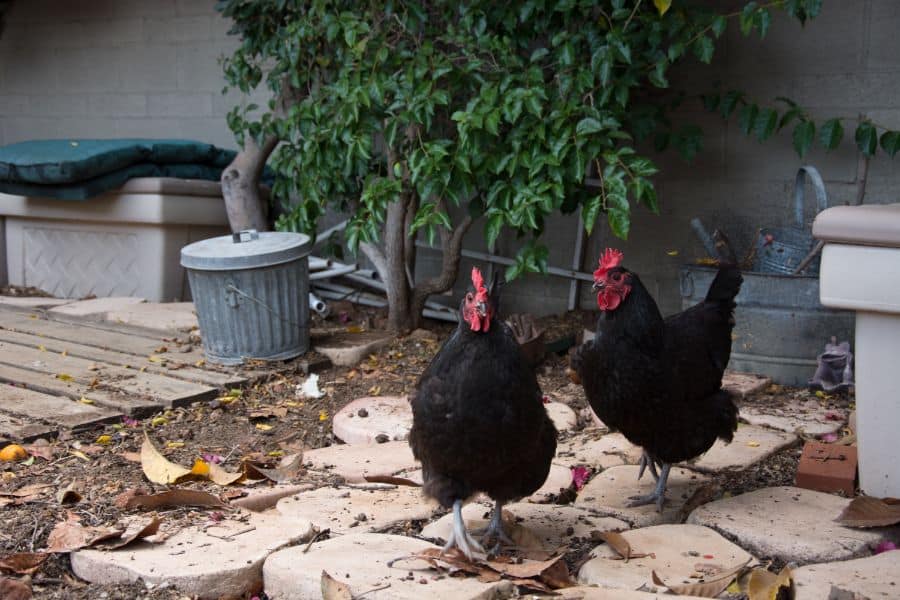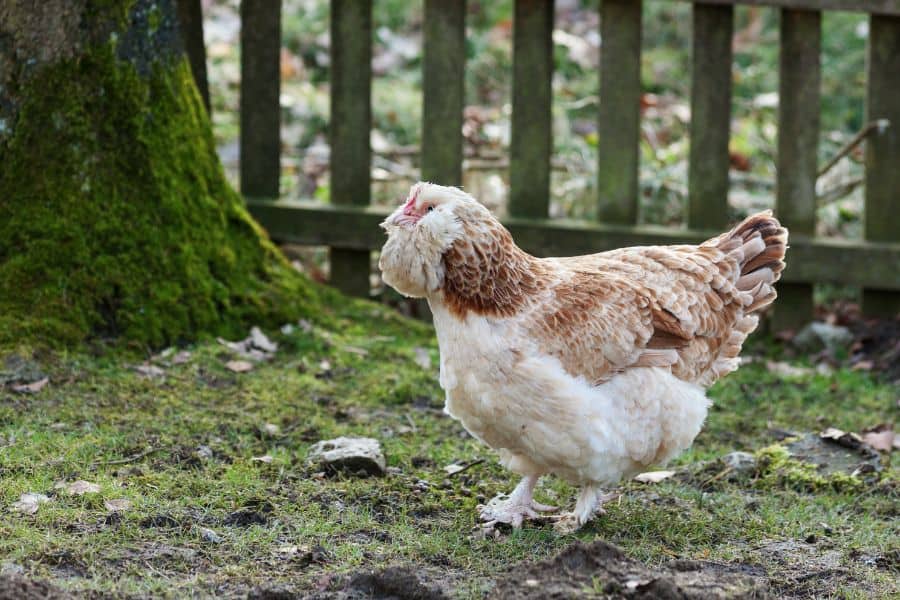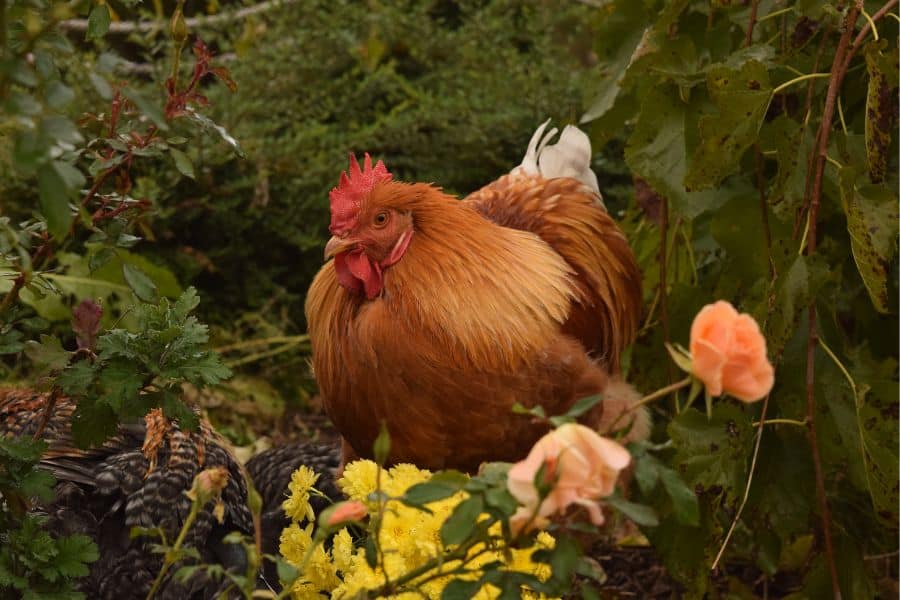Are you looking for the sweetest and friendliest chicken breeds to add to your backyard flock?
Like most domesticated animals, chickens can provide their owners with companionship. Some breeds form deep bonds to a point where their owners can hold, cuddle, and pet them without any worry of pecking or scratches.
As a fact, chickens can act as support animals for individuals with depression and anxiety. Just spending time with friendly birds can bring a sense of calmness and boost mental well-being.
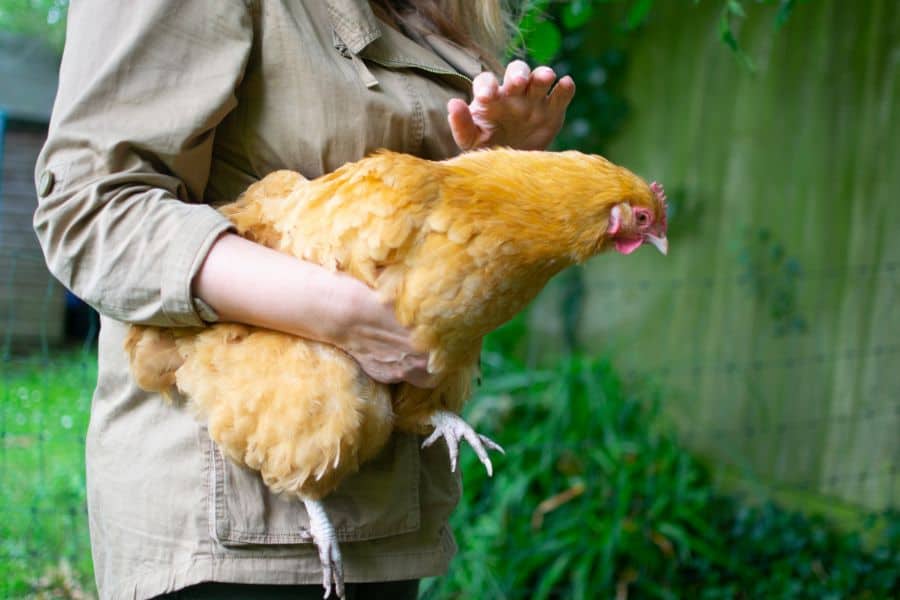
Do you want to know the best part? Sociable birds are much easier to manage and handle. This makes the process of egg collection more enjoyable.
Sadly, not every chicken breed can make a lovely family pet. Some have a moody disposition and tend to show signs of aggressiveness. Most people often avoid such birds because they spell trouble and can make poultry farming challenging.
So, which chicken breeds offer the best companionship while still providing eggs for the whole family?
We will answer this question and more that might have crossed your mind below. So, join us!
Most Friendly Chicken Breeds You Can Own
1. Silkie Bantam
- Average size: 2-4 lbs
- Temperament: Friendly, calm, kind, sweet, enjoys being held and petted
If you are looking for a sweet-natured chicken breed as a companion, you have met your match.
Originally from China, the Silkie chicken is an ancient breed considered a bantam (meaning small) in many parts of the world.
They are very lightweight and easy to handle, and their soft fluffy feathers feel like hair and make them look like a Muppet. That’s why children love them.
What’s more, Silkies love cuddles and being carried around. They are non-confrontational and laid back. Their personality makes them a target of bullying by aggressive breeds.
Their naturally black skin, black bones, five-toed feet, blue ear lobes, and feathered colorful feet are arguably their most distinctive features.
Additionally, Silkie hens make great broody mothers. Some people even say these chicken breeds can hatch a rock, meaning they often sit on eggs until they hatch, even if it’s not theirs.
Raising Silkie Chickens as Pets
Silkies enjoy company and attention and are fine with confinement as long as it’s dry, mud-free, and has enough space.
Did you know Silkies are among the few breeds that love being kept in apartments? Yes, these little cuties love a little luxury!
However, note that Silkie chickens lack barbicels in their feathers, making them susceptible to bad weather like snow. Thus, they need to be protected from severe cold weather.
Also Read: Small Chicken Breeds
2. Buff Orpington
- Average size: 6.5-8.5 lbs
- Temperament: Friendly disposition, calm, docile, curious, affectionate, laid back
The Buff Orpington is a general-purpose chicken breed with an easy-going personality. It’s considered a royal bird as its roots trace to England, where it was the Queen’s Mother’s favorite chicken breed! Today, King Charles is the Champion of Orpingtons.
Buff Orpingtons are gentle and non-aggressive birds that respond well to attention.
They come in several colors, including blue, black, white, and buff,
and can add beauty to your backyard flock. Their smooth, fluffy feathers, plus short and curvy backs, add more uniqueness to their appearance. Let’s not forget their pinkish-white legs, feet, and beaks.
Raising Buff Orpingtons as Pets
Buff Orpingtons show common behaviors like dust bathing, foraging, fast growth, and being excellent mothers.
They are also cold-hardy thanks to their large size, small combs, and wattles. They are super good egg layers, producing up to 280 eggs per year.
This chicken can survive harsh weather and handle confinement very well. That said, ensure you provide the birds enough room to move about.
Orpington enthusiasts love these fluffy birds for their affectionate personality, cuddly nature, and low maintenance requirements.
The chicken breed also brings a brush with royalty, historical interest, and superb qualities to your backyard.
3. Brahma
- Average size: 7-12 lbs.
- Temperament: Docile, calm, cuddly
Brahma chickens are versatile chicken breeds that come in bantam or regular sizes. Their friendly, calm, and playful nature makes them great pets.
Besides, they are prolific egg layers with an attractive and unique look. You can even raise them for meat, thanks to their large size.
Brahma chickens are gentle and are often victims of bullying since they don’t fight back when attacked.
Raising Brahma Chicken as Pets
Brahma chickens are prominent among poultry enthusiasts. Farmers love them for their friendly nature and proficient egg-laying capability.
Furthermore, they adapt well to extreme weather conditions. Probably, you are wondering how this is true with their thick feathering and heavy bodies. Well, these chickens don’t show any distress in summer like many other flocks. However, always provide them with cool water and shade in hot climates.
Brahma’s feather-covered legs and heavy weight make them cold-hardy hence suitable for the northern environment. Also, you don’t have to worry about them taking flight. Therefore, you can create a lovely range in the yard.
4. Specked Sussex
- Average size: 7-9 lbs
- Temperament: Fairly calm, curious, chatty, kind, docile but watchful
If you are looking for an incredibly inquisitive yet sweet and delicate bird, the speckled Sussex breed could be your ideal answer. It’s a curious, strike-looking, excellent companion, and extremely pleasant. This breed is the Oprah of the poultry world.
The Specked chicken is a prevalent dual-purpose breed that originated from Sussex. From the moment the chicks hatch, you can’t miss their unique coloration. They have striking dark-striped markings around the eyes that make them distinct.
As they grow older, they develop charming adult markings. Their feathers are an elegant mahogany color, with black and white tips. With age and after each molt, the white tips multiply, giving them a more speckled look, hence their name!
Raising Specked Sussex Chickens as Pets
Friendly, cute, gentle, and entertaining, the Speckled Sussex chicken is undoubtedly a breed to add to your flock. They are good egg layers, producing up to 250 light brown eggs annually. Additionally, they will still lay eggs in cold winter when other breeds stop egg production!
You’ll find these cuties running to greet you in the mornings, chatting and sitting next to you in the yard. And if that is not enough, they will sing soothing warbling songs when contended!
What a calming way to raise your spirits!
Speckled Sussex’s calm and docile personality makes them adaptable to different living arrangements. They make great free rangers yet are so calm to cope in confined areas. Also, they adapt pretty well in cold and hot climates.
5. Australorp
- Average size: 6.5-10 lbs
- Temperament: Gentle, friendly, easy-going, social, peaceful, quiet
The Australorp chicken is a medium-sized dual-purpose bird known for its outgoing and curious personality. It’s famous for its black-colored variety and it’s an exceptional egg layer, producing up to 300 eggs annually.
Australorps have iridescent green-colored feathers that glow in the sun. And as they age, the feathers develop a slight gray speckle on the tips.
Raising Australorps as Pets
Australorps are friendly and docile birds. They are known to follow their owners when treats are involved. And because they are native to Australia, they adapt well to a range of environments.
While Australorps love free ranging, they cope well in limited spaces and are easy to tame.
6. Faverolles
- Average Size: 6.5 to 8lbs
- Temperament: Affectionate, calm, gentle, comical, curious
Often characterized as sweet, Faverolles are so gentle and social with other chickens and people. If you keep them with other breeds, they might get bullied.
Faverolles are a gorgeous and unique French chicken breed known for their fully feathered beard and fluffy cheek feathers (muffs). And just like Silkies, they have five toes on each foot.
Although they come in different colors, salmon is the most common.
Raising Faverolles as Pets
Faverolles are jokers in the backyard, thanks to their curious, comical, and happy temperament. In addition, they love talking and cuddling with their owners. Some people say holding them feels like holding a pillow.
They are gentle, sweet, and lovable, making them outstanding pets for kids and families. They will keep you laughing and smiling as they chatter their little beaks off.
Also, they are impressive egg layers, producing over 200 eggs annually.
7. Cochin Chickens
- Average size:5 – 11 lbs.
- Temperament: Gentle, Easy to handle, Laid back
Another friendly chicken breed worth considering is the Cochins. These birds first came to Europe from China through sea and trade roots.
Immediately, the breed won the hearts of poultry enthusiasts with their big stunning bodies. Sadly, their proficiency of laying eggs reduced over time. But worry not! What Cochins lack in egg production, they make for with their impressive table qualities and astonishing appearance.
Both roosters and hens have lots of feathers, even down to their feet and shanks. As such, these beauties don’t bond well with mud. The good thing, you can keep these birds happy by providing them with a dry run and a small patch to forage.
Raising Cochin Chickens as Pets
Cochins make great pets because they thrive in confined spaces and free-range settings. They are also hardy and can withstand cold weather thanks to the abundance of fancy feathers.
On the same point, their feathers boast vibrant colors and patterns, which explains why its normal to find these birds at exhibitions and shows.
In terms of personality, these giant birds have a gentle nature. They bond well with other chicken breeds, house pets, and children. Also, the hens are excellent mothers and can even brood and hatch another chicken’s eggs.
8. Sultan Chickens
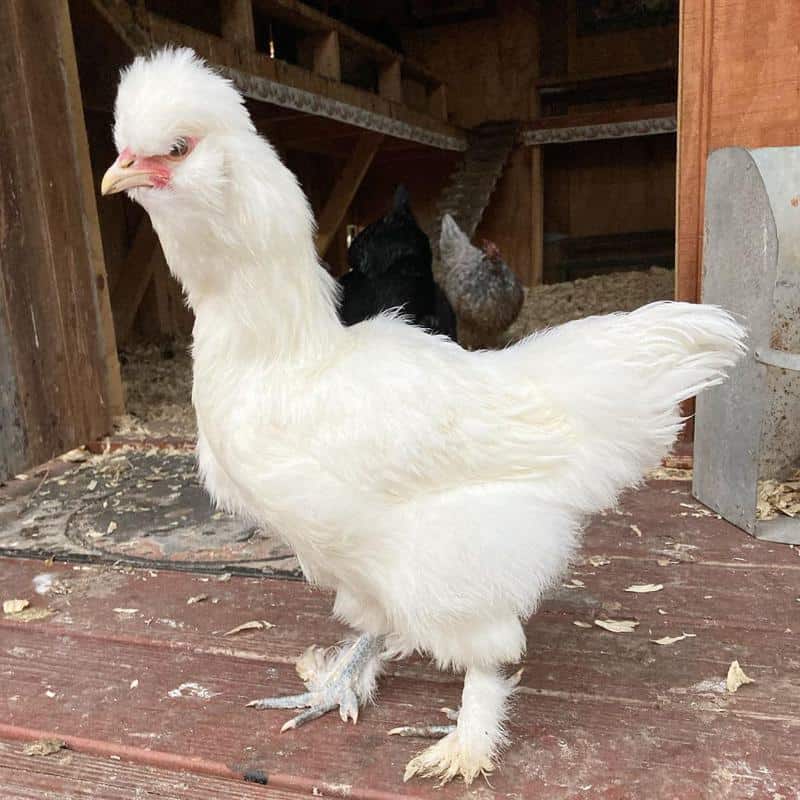
- Average Size:5 – 5 lbs.
- Temperament: Clam, Docile, Friendly
Like the Sultans (kings or rulers) of the ancient Ottoman Empire, the Sultan Chickens are a majestic and beautiful breed. But too bad they might go extinct soon if no conservation efforts are implemented. In fact, they almost disappeared from the face of the earth in 1930.
The Sultan chickens are often raised for ornamental purposes due to their unique appearance. They have distinctive crests, similar to the turbans worn by Sultans. On top of that, the birds have a V-shaped comb, beard, muffs, 5 toes, and feathered shanks and toes.
Sultans also have a reputation for being good table birds, but they can still provide you with about 50+ small white eggs.
Rasing Sultan Chickens as Pets
Sultans do well as pets, but require lots of care and maintenance. First off, their beautiful crest makes them a target for predators. They are also not cold-hardy and often suffer from frost bites.
On a positive note, they do well in cool and warm climates and have no problem with confinement. They also like cuddles and hugs and rarely show signs of aggression.
9. Jersey Giant
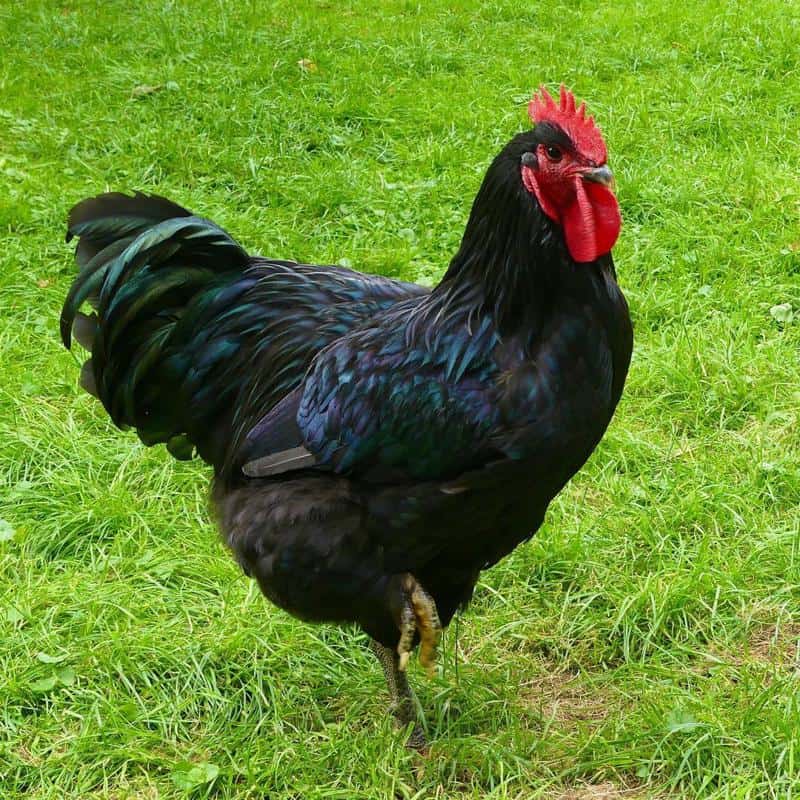
- Average Size: 11–15 lbs.
- Temperament: Happy, Calm, Mellow
Closing our list is the Jersey Giant chicken. This chicken breed is ideal for people who love big birds. The hens and roosters weigh an average of 10 and 13 pounds, respectively. They can also grow to heights of up to 2ft. But still, they don’t surpass the tallest chicken breed- the rare Malaya Chickens.
Additionally, the Jersey Giants are spectacular. For instance, the Black Jersey Giants rock a dark plumage with a striking green sheen that’s breathtaking when hit with sun rays. Their yellow soles, single comb, and deep red wattles also make a worthy addition to your flock.
Even better, Jersey Giants can thrive in cold climates and are super resistant to illness and diseases. They also show no fear in the face of predators and integrate well with other flocks.
Raising Jersey Giants as Pets
Jersey Giant chickens are mellow, happy, and calm. If they get used to you, you can carry, hold and pet them even when they are foraging.
Don’t worry! Your kids will also love these chickens, though their huge size and height can intimidate smaller children.
And the best part? They are not flighty and are easier to handle and care for.
Also Read:
Factors to Consider When Choosing the Friendliest Chicken Breed
Choosing an easy-going chicken breed is a challenge due to the many beautiful and unique varieties available. Luckily for you, we’ve curated a few factors to consider before making a selection. Check them out!
- Breed personality: Chickens are unique individuals with different personalities and temperaments. For instance, some breeds are friendlier and more docile than others, making them prone to nervousness and flightiness. Therefore, if you want kid-friendly chicken, you’ll need more tolerant breeds that don’t freak out when kids go near them.
- Breed Purpose: Dual purpose Chickens tend to be more friendly than others. So, choose a breed that will offer you companionship while providing you and your family eggs or meat.
- Climate: Just as some chicken breeds handle the hot weather better than others, others can adapt to cold temperatures. Depending on where you live, you’ll have to find a breed that is more suitable for your environment.
- Easy Breeders: Having a flock that efficiently and effectively reproduces on its own makes them an asset to your backyard.
Can You Train Chickens to Be Friendlier?
Usually, chickens don’t trust easily and will often panic when they find themselves in an uncomfortable situation. For example, if you introduce a new food or treat to their diet, you’ll notice how hesitantly they approach it.
Fortunately, chickens can be trained to be friendly like other pets. You just need to learn to build trust between you and your flocks. Here is how you can do that…
Training Chicks to Be Friendly
Stop by your chicken coop and pick up the chicks – let them see your face. It also helps to talk to them in a low, gentle voice or let the baby chickens sleep on your lap or hands. This way, they can get used to your presence.
Try to massage their head slowly because their bones are still soft and brittle. As the chicks get used to human handling and interaction, they’ll start to enjoy it.
You know chicken love treats, right? Be generous and give the chicks healthy treats like lettuce or mealworms to will their heart. This allows you to create a deeper relationship by using food as the building block.
Training Adult Chickens to Be Friendly
Older chickens can be a bit tricky to train. They don’t take lightly to touching. So, you need to give them some time and attention to truly build trust and friendship.
First, identify a location in the chicken house to sit and watch your birds roaming.
Do you know sitting on the ground around chickens is the best way to connect and communicate with them?
The reason is that you will appear less threatening. However, avoid making sudden movements or loud noises that could startle your girls. Another thing, don’t try to hold the chickens forcefully. Otherwise, you might increase the hostility.
The longer you spend time with them, the more their curiosity will grow. Eventually, they will want to identify the individual in their surroundings. When that happens, give them some treat to encourage them to close in.
You can also talk to them while moving around your backyard, allowing them to get used to your voice. After some time, your chickens will get used to your voice and react whenever you talk.
Lastly, be patient. Not every chicken wants human friends. With time, you’ll know which chickens enjoy human interaction and which prefer to keep their distance.
Also Read: What to Do When a Rooster Attacks You?
Final Thoughts
Today, people see chickens as more than just sources of meat and eggs. Like dogs and cats, chickens can offer companionship and life-long friendship. Now you understand why they sometimes serve as support animals. But this only holds for friendly chickens.
According to our research, the friendliest chicken breeds include Silkies, Buff Orpingtons, and Specked Sussex. And on top of that, these breeds also possess other interesting traits like egg-laying capabilities. As such, they make the perfect addition to your backyard flock.
Alternatively, you can teach your chickens to be friendly. But you have to start when they’re still chicks so you can build a strong bond of trust with them. For older folks (roosters and hens), spend more time and talk with them, while giving them treats.
